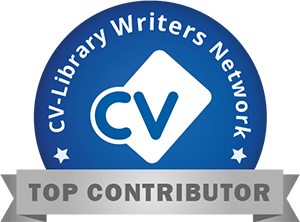Politics
- It's time to realise that careers advice is a valuable profession

It's time to realise that careers advice is a valuable profession
Monday 3rd December 2018
Today The times published an article prompted by a speech by Robert Halfon MP, about the use of money by the Careers and Enterprise Company. The headline
Careers Advisers Condemned for wasting money
seemed to infer that the Careers and Enterprise Company are careers advisers. I'm not intending to discuss the rights and wrongs of the CEC and their budget, what I would like to think about is the role of the careers adviser and the public perception of the role.
We've all seen and/or heard too many time somebody giving forth on how useless their careers interview at school was. Lines such as "They told me I should be a... " or "They didn't know anything about me" or even "That was a blooming waste of time". So what is the value of a qualified careers adviser?
The 21st Century Careers Professional
Gone are the days when careers advice was a job you went into if you couldn't make it as a teacher or other profession. Whilst it's not (yet) a protected profession and anyone can call themselves a careers adviser or careers coach, the general public need to know what the professional qualifications are for careers professionals so they can ensure any careers adviser is qualified to support them.
Work based routes
You may come across some professionals who are employed and working towards higher qualifications, usually these people have a L4 Diploma in Career Information and Advice (equivalent to the first year or two of a degree)
Study based routes
Most qualified careers professionals have a first degree followed by the post graduate Diploma in careers guidance (equivalent to a PGCE or any other 1 year post graduate study.)
The CDI Register
Those on the Career Development Institute professional register are all qualified to L6 standard and agree to undertake a minimum level of professional development each year and comply with a code of ethics that includes impartiality of advice. They can also use the letters RCDP after their name.
The difference between advice and guidance
I'm not one to reinvent the wheel, the CDI published an excellent case study which illustrates the differences but if you can't be bothered or don't have the time to read the whole thing then in general:-
- Advice points you in the right direction and leaves you more or less to do it yourself
- Guidance supports you through the process ensuring the help you access is tailored to your needs.
So what is the difference between a L4 & a L6 adviser?
This is hard to communicate. The best way I can think of is to compare a visit to a nurse practitioner and a doctor. There are a limited amount of treatments that a nurse can prescribe. If the patient has needs beyond those that a nurse practitioner can prescribe then (s)he needs to refer on to a doctor.
So if you have a simple query such as "Where can I find info on becoming a xxx" then a L4 adviser would probably be fine for your needs, anything more than this would require a L6 professional.
Gatsby Benchmark Recommendations
The Gatsby Benchmarks which all schools are meant to be working towards meeting by 2020 require that all career professionals providing one to one interviews with school pupils should be L6 qualified and be on the CDI register. This is to ensure the quality of the advice and also the impartiality - that the advice is given in the best interest of the pupil not the school, an employer or any other person or body.
This sums up for me the need for the general public to understand the need for careers professionals, the impartiality aspect. You won't necessarily get that from an employer or an employee of a school who may well be told to get as many bums on seats in the school 6th form as they can.
So to get back to my first point, the headline should have read : -
Careers Support Body Condemned for Wasting Money.





